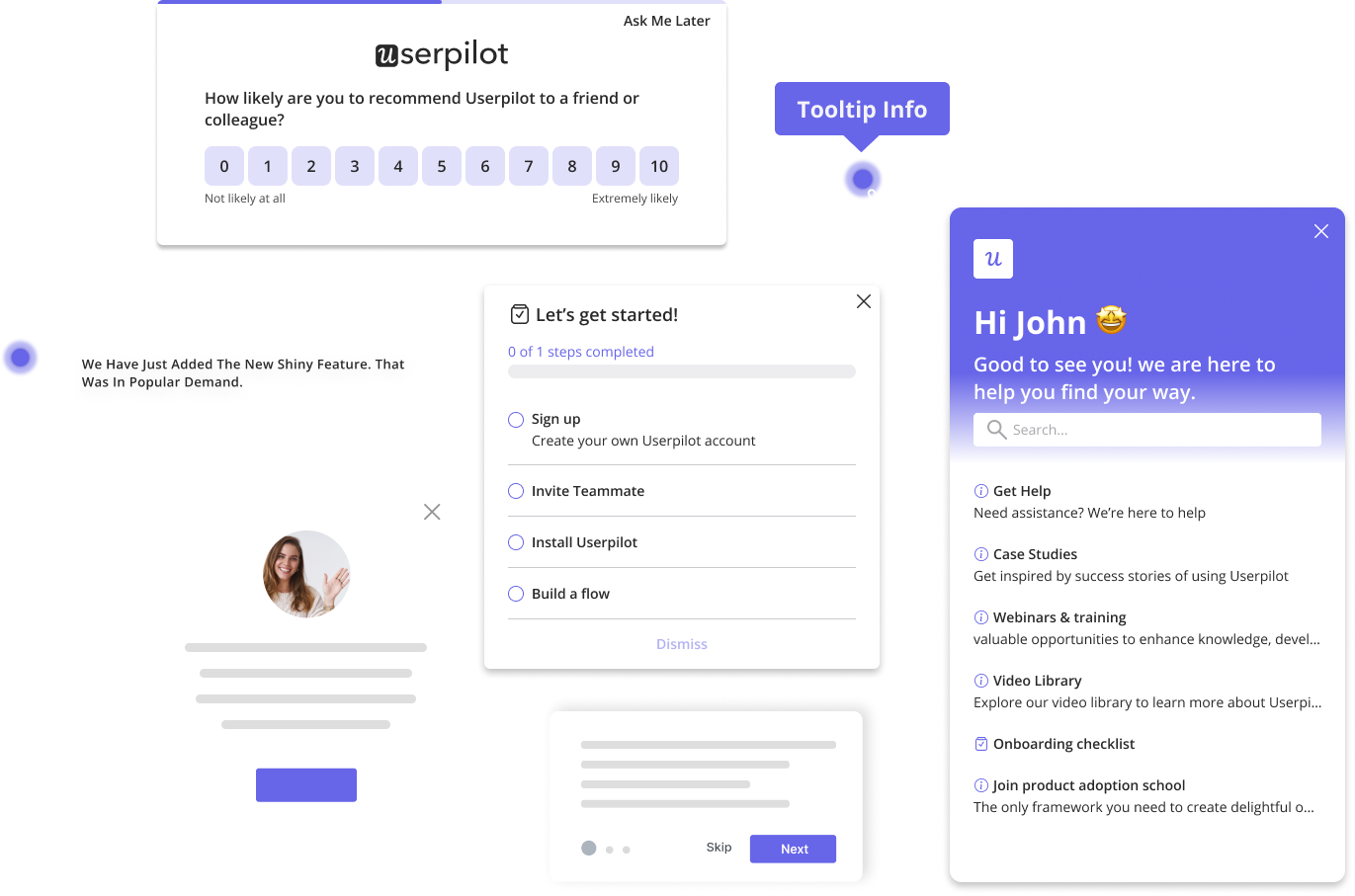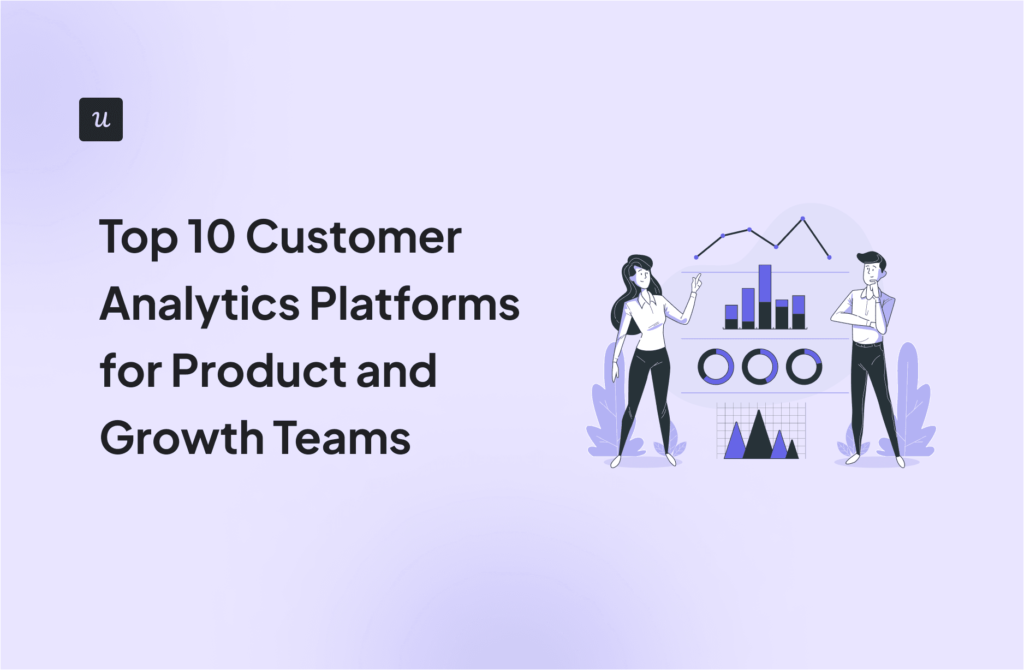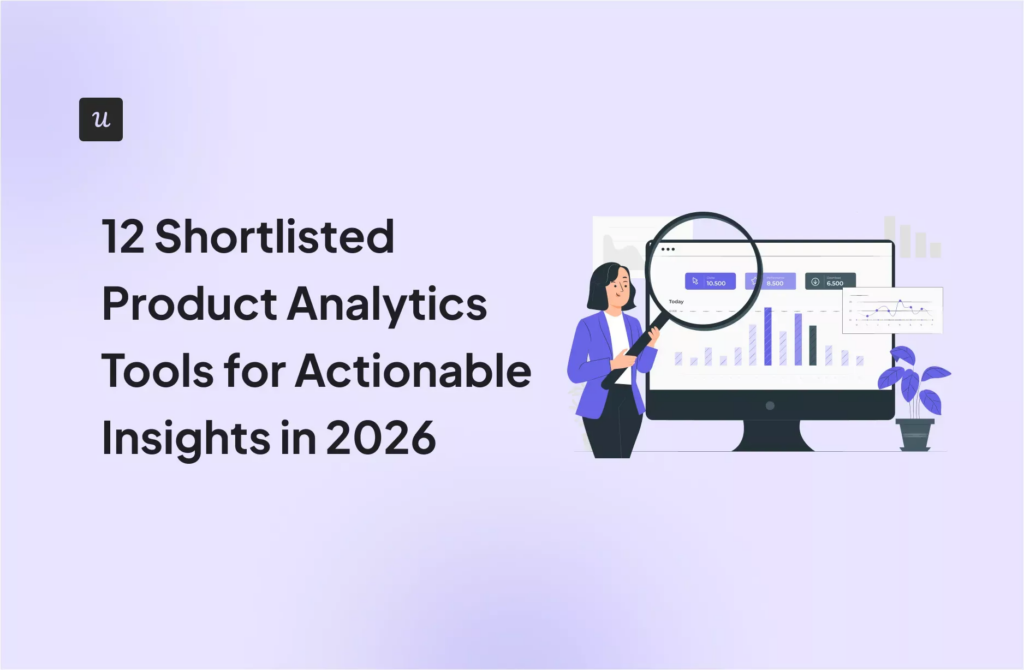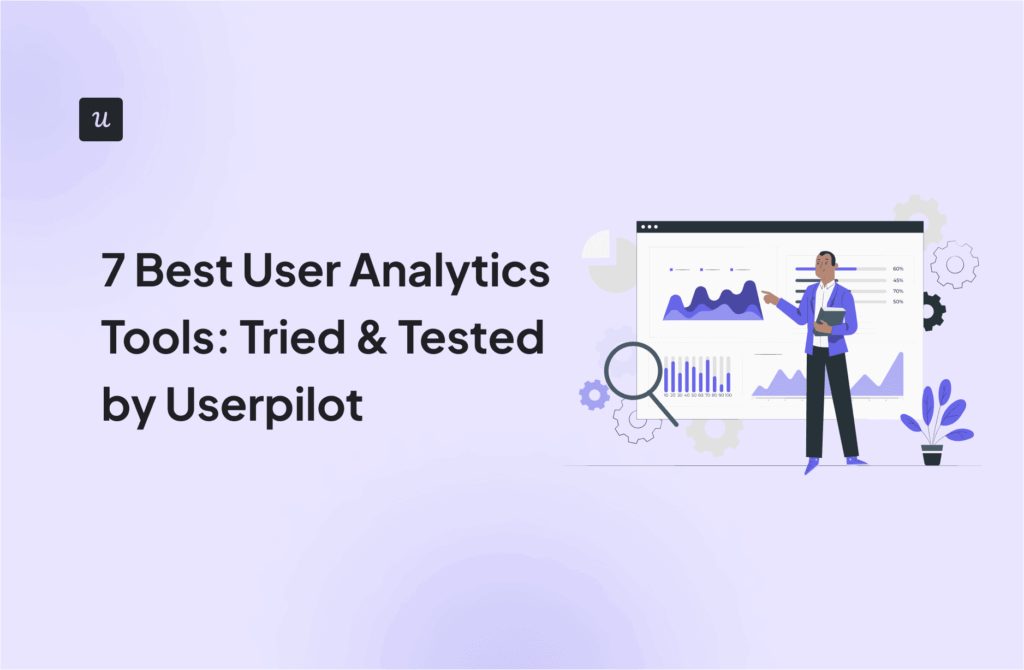Customer progress tracking can help you understand how customers make progress with your product. Based on such product analytics, you can further improve your product offerings and drive growth.
There are several ways to perform progress tracking, and we discuss all of them here for you. So, without further ado, let’s dive in!
Try Userpilot Now
See Why 1,000+ Teams Choose Userpilot

Overview of customer progress tracking in SaaS
- Customer progress tracking includes all the steps taken to monitor customer advancement toward a desired or set goal with your product or service.
- You should start progress tracking because it provides great clarity about customer engagement or potential pain points keeping them from progressing.
- While there are several ways to track customer progress, here are the four we recommend:
- Track user behavior on an individual level for a deeper understanding of customer engagement.
- Use product flows to monitor user interactions linked to certain progress levels.
- Conduct funnel analysis to find drop-off points that are hindering customer progress.
- Perform path analysis to study what steps users take to reach a goal within your product.
- Manually trying to track customer progress is tiring work. Adopt customer tracking software instead, such as:
- Zoho CRM: A customer tracking system for monitoring the entire customer lifecycle, from the sales funnel to marketing and support.
- Zendesk: A customer service tracking software to stay on top of support tickets for each customer.
- Userpilot: A no-code custom event tracking software with analytics features, reports, and customizable surveys for feedback collection.
- Want to get started with customer progress tracking of your own? Book a Userpilot demo today and see how we can help!
What is customer progress tracking?
Customer progress tracking is the process of analyzing the advancement and behavior of customers through their journey with your product or service.
The first step of progress tracking involves collecting relevant customer behavior data across various touchpoints. Examining this data helps gain insights into customer interactions with your product and their engagement and satisfaction levels.
Plus, progress tracking also helps identify how close customers are toward achieving a desired goal or outcome. Once you know all this, you can work on improving the customer experience to help speed up customer progress.
How to track customer progress in your product?
Effectively tracking customer progress is vital for developing a better understanding of the customer experience. You can use various channels to track progress, both on an individual level or for entire customer segments.
Here are a few ways to effective customer progress tracking:
Track user/company behavior on an individual level
To start, you should focus on tracking behavior on an individual level. This will help draw valuable insights into how customers interact with your product on a more granular level. You’ll uncover useful data on key metrics such as feature usage, events fired, and numerous engagement metrics, as well.
Tracking client interactions manually, and that too for hundreds of users, is a daunting task. Instead, try using an analytics tool to automate behavior tracking.
As an example, consider the user/company profile features offered in Userpilot. This tracking feature enables you to view activity details of a specific user/company, such as sessions, user sentiment, customer satisfaction, engagement levels, etc.

Track customer interactions with product flows
Product flows include all the different sequences of steps customers could take within your product to achieve a goal.
Each step taken toward the end goal lets you know how much progress the customer has made. So, if customers have performed a specific action, you will know where they are in the process.
For example, onboarding sequences let you know that the customer is just starting to make progress. In contrast, feature tutorials will signal that progress has been made towards feature adoption. With Userpilot, you can automate tracking product flows as you create them.

Use funnels and segmentation to determine drop-offs
Progress tracking is important for understanding possible barriers keeping customers from making progress. Such barriers are known as friction points, and if left unchecked, they ultimately lead to churn.
To find friction points, use funnel analysis to visualize the customer journey and identify where users are dropping off.
You can also filter the drop-offs by customer segments. This way, once you fix the problem areas, you can provide a more personalized customer experience, free of any hindrances.

Conduct path analysis to understand customer navigation
A customer path is a visual representation of how users navigate across your product. By examining the various paths customers use, you can uncover the steps they take to achieve their goals.
When performing path analysis, you will notice that some customers take a far too complex path to perform their desired action. In other words, they don’t take the optimized conversion path.
In such instances, you can use in-app guidance to nudge those customers toward the right path to boost their progress.

Best customer tracking software for SaaS
Customer tracking is hard work. It involves collecting and analyzing tons of data, which is a lot of unnecessary manual labor. Apart from being complex, progress tracking is also really time-consuming.
Instead, make your life easier by picking the right customer-tracking software to do the job for you!
Userpilot for collecting and analyzing customer data
Userpilot is a no-code, custom event tracking software, designed to help you collect and analyze customer behavioral data, all in one.
To better understand customers and why they aren’t making progress, you can also create and automate surveys to collect customer feedback. Next, you can conduct flow engagement analytics to track customer progress with onboarding, new feature adoption, etc.
Userpilot also has built-in analytics dashboards and analysis reports to help draw actionable insights from collected customer data.

Zoho CRM for customer relationship management
Zoho CRM is a leading customer tracking system, typically used for monitoring sales data, marketing, support service, and customer’s purchase history. The software helps bring all your teams on the same page by managing customer data from one central system.
Using Zoho CRM, you can track the entire customer lifecycle, study when customers make progress, and perform marketing automation.

Zendesk for tracking customer service interactions
Lastly, Zendesk is great for tracking customer service interactions for both websites and mobile apps. The customer tracking software provides different features for this purpose, such as messages, a help desk, and AI chatbots.
Plus, the support ticket status tracking enables you to monitor the progress of individual customer issues as well. This way, you know which customers to focus on and offer a more personalized experience to.

Conclusion
Customer progress tracking can be tricky to get the hang of. However, once you get it right, you’ll uncover great insights on how to improve engagement and build stronger customer relationships.
Want to get started with customer progress tracking? Get a Userpilot Demo and see how you can improve customer satisfaction.








